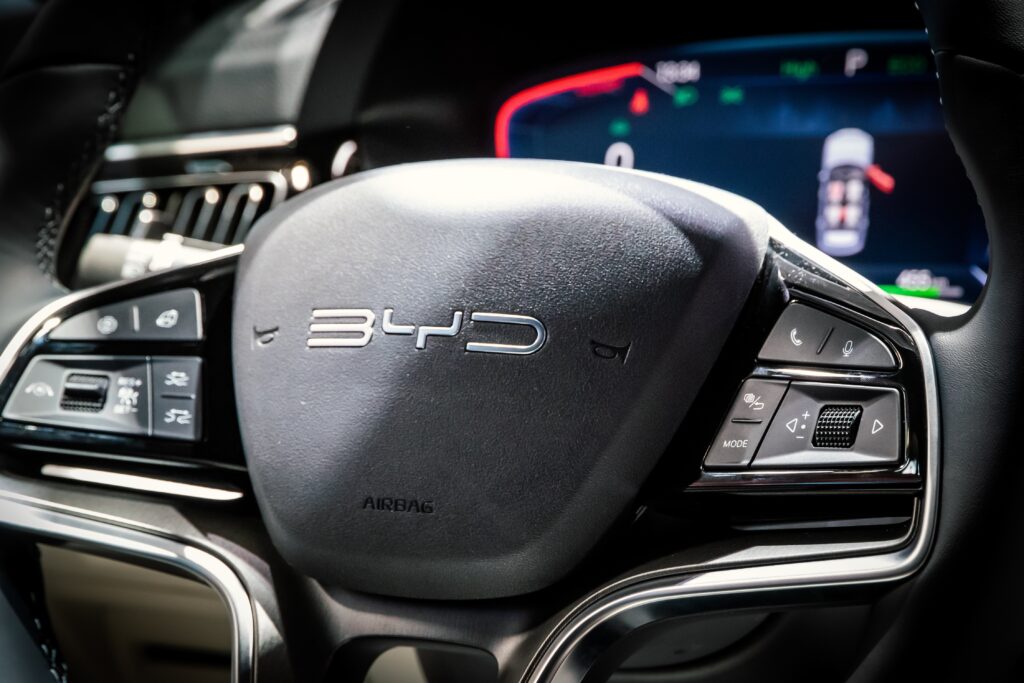Chinese electric vehicle (EV) manufacturer BYD has raised $5.6 billion (€5.3 billion) through Hong Kong’s largest share sale in four years. The funds will support the company’s plans for global expansion, including new production facilities in Turkey, Hungary, and Brazil. This move underscores BYD’s ambition to strengthen its foothold in the rapidly growing global electric vehicle market.
Record Share Sale Supports Global Expansion
BYD sold 129.8 million shares at HK$335.20 (€40.9) each, offering an 8% discount from the previous closing price. This marks a major milestone for the company, signaling its commitment to boosting production capabilities across key international markets. As the global demand for electric vehicles surges, BYD is investing heavily in expanding production infrastructure to solidify its position in Europe, Latin America, and other regions.
BYD and Tesla: A Shift Toward Collaboration?
Although BYD and Tesla have been direct competitors in the electric vehicle sector, BYD is now expressing interest in cooperating with Tesla to accelerate the shift to electric mobility. Stella Li, BYD’s executive vice president, emphasized that “Our true competition is with internal combustion engine vehicles. The industry needs cooperation to transition to electric mobility.”
BYD is even open to sharing key technologies such as autonomous driving software and battery innovations. This willingness to collaborate, despite ongoing geopolitical tensions between China and the U.S., reflects the broader goal of reducing reliance on petrol-powered cars and achieving sustainable transportation solutions worldwide.
BYD Gains Ground in Europe as Tesla Faces Challenges
BYD’s focus on producing affordable electric vehicles has helped the company gain significant market share in Europe. A major factor behind this success is BYD’s advanced blade battery technology, known for its improved efficiency and extended driving range. These features have made BYD’s EVs particularly attractive to budget-conscious consumers in Europe.
In contrast, Tesla, which has long dominated the electric vehicle market, is facing a slowdown in its European sales. Analysts attribute this decline to several factors, including CEO Elon Musk’s increasing political involvement and ties to far-right political parties and former U.S. President Donald Trump. These associations may be influencing Tesla’s image in Europe, where politics play a significant role in consumer choices.
EU Tariffs Impact the EV Market
The European Union has recently imposed additional tariffs on Chinese electric vehicles, including BYD models, due to accusations of unfair government subsidies. These tariffs include a 17% surcharge on top of the existing 10% levy on Chinese-made EVs. Other Chinese automakers, such as Geely and SAIC Group, are also facing high tariffs, with rates of 18.8% and 35.3%, respectively.
These tariff increases could drive up the prices of Chinese electric vehicles in Europe, reducing their competitiveness in the region. In response, many Chinese manufacturers, including BYD, are increasingly focusing on hybrid vehicles, which are exempt from these tariffs, to maintain their market share in Europe.
A Shifting Landscape for Chinese EV Manufacturers
The ongoing trade challenges between China and the European Union are raising questions about the future of Chinese electric vehicle manufacturers in Europe. While BYD’s affordable EV models and innovative technologies continue to drive its growth, the impact of the new tariffs is still unclear. By shifting focus to hybrid vehicles, BYD aims to cushion the effects of these trade restrictions and ensure continued expansion in the European market.
In addition, BYD’s commitment to global expansion, including plans for new production facilities in key regions such as Turkey, Hungary, and Brazil, is expected to further bolster its competitive position. As the global electric vehicle market evolves, BYD’s ability to adapt to changing dynamics will be crucial to its long-term success.
